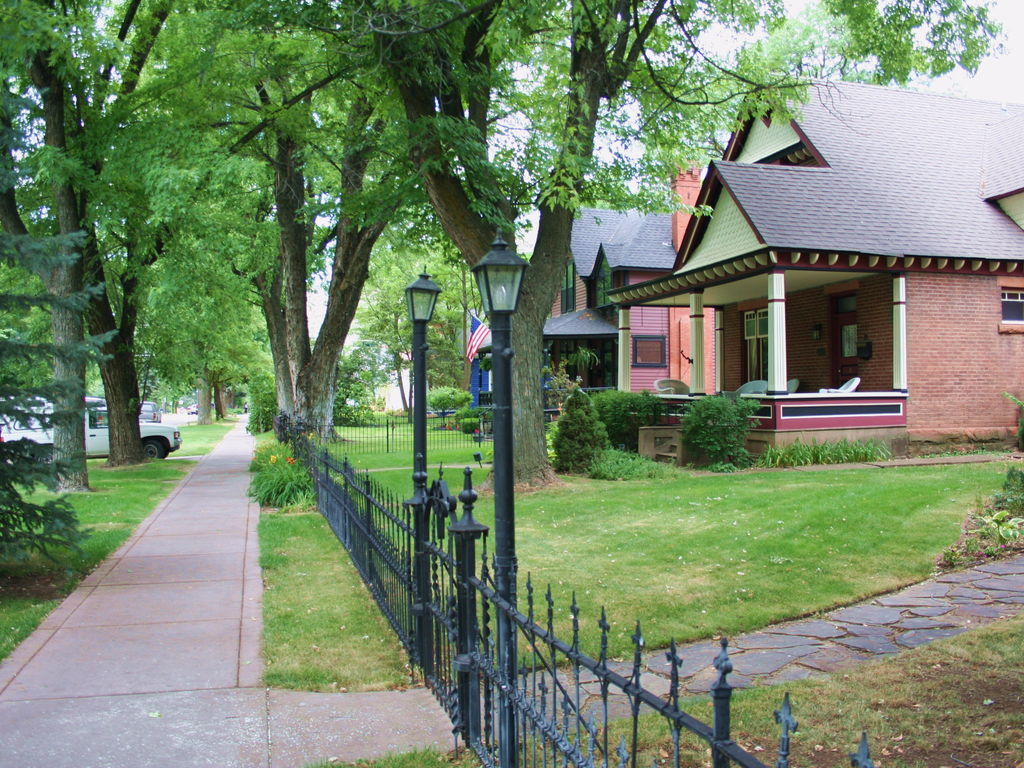Homes for Sale in Colorado Springs
Tips for Finding Investment Homes for Sale in Colorado Springs

We often have the opportunity to speak with new investors as they begin their journey into the world of real estate investing. Many of those conversations end with them asking for our best advice on real estate investing. And we most always share with them this one important idea – manage expectations.
This is so key for the new investor. We know this because we’ve been there, but also because another common conversation we have with investors goes something like this:
New Investor: “Hi, I’m looking for homes for sale in Colorado Springs under 150. What do you have for me?!”
Me: “Great! I know of a cozy 1 bedroom condo that would be perfect for you.”
New Investor: “No, no…I need a 3 bed 2 bath home with a big yard, attached 2-car garage, in a nice neighborhood and good school district, with only minor cosmetic repairs needed…for under 150.”
Me (laughing): “Don’t we all.”
In reality, if you approach your investing strategy looking for homes for sale in Colorado Springs for under 150 and you have criteria that matches the above description, chances are you need to change your expectations.
As you’ll quickly learn, managing your expectations can be one of the most valuable tools for your investing journey. Most would-be investors give up before they ever actually do a deal. Or they do one deal, fail and return to their day job with quiet resignation. This is primarily due to the fact that they simply don’t know the reality of what to expect.
We want to help you avoid that. Understanding the challenges you’re facing and how to manage those challenges will arm you with what you need to push through when circumstances become difficult.
Managing Expectations with Colorado Springs Homes for Sale
Here are some tools we’ve learned that may help you when searching for homes for sale in Colorado Springs.
- Understand the Colorado Springs real estate market.
In the past 4-5 years, Colorado Springs has garnered much attention from savvy investors as well as national “best-of-living” lists creating the perfect storm for real estate. Plenty of people moving into town plus an influx of investor interest has driven supply down and demand up, taking prices with it. While this doesn’t mean you can’t find a deal, it’s important to remember that what you could have found for $150,000 five years ago, simply isn’t the case anymore.
What to Remember: Colorado Springs real estate prices have risen considerably in the past five years. While prices may have been closer to many opportunity-rich Midwest cities in the past, this is no longer true. You probably won’t find your typical fix-n-flip deal that most investors suggest. Understand that either your price will need to be increased or your criteria lessened. - There’s no quick path to riches.
Exciting TV shows and unlikely success stories would lead one to believe that a profit of $75,000 per flip is the norm. This just isn’t the case. Real estate is an excellent way (in our opinion, one of the best ways) to build wealth; however, it’s not a get-rich-quick route. It takes time to build the equity and capital to get to deals that are providing the amount of profit mentioned above. Some rehabs can end up lasting 9-12 months and only profit you $15,000. Run the numbers on that…we’re pretty sure your day job pays considerably more than that in 9 months.
What to Remember: Don’t look for a deal that will profit you a year’s worth of wages in 3 months. You’ll be sorely disappointed. And if you do find something that promises that, chances are you need to run your numbers again. Certainly look for a deal that has plenty of safety margin, but don’t expect an excessive amount of profit per deal. It’s just not realistic.
- Don’t be afraid to partner.
We speak to many would-be investors looking for homes for sale in Colorado Springs that seem to think they have to do this thing all on their own. Whether it’s their unwillingness to share any profit or their misplaced confidence that they already know exactly what to do, new investors are often more opposed to partnering than experienced ones. And maybe that should tell you something.
What to Remember: It’s okay to need someone else. In fact, it’s good. You’ll learn much quicker and avoid many mistakes by partnering with an experienced investor. Besides a little money is better than no money…or even worse, losing money. Most experienced investors we know have numerous partners, depending on the type and scale of the deal they are doing.
- Enthusiasm shouldn’t be your only currency.
This may seem like a no-brainer to some, but you’d be surprised how many hopefuls come at the game with little more than excitement about the podcast they listen to every day. Excitement is good, and enthusiasm may initially get you noticed. But eventually, you will find you need more than just enthusiasm in order to actually get buy-in from partners, investors or lenders. Figure out what else you can bring to the table.
What to Remember: Start with what you know. Is there something about what you currently do that can support another investor? Perhaps you’re good with numbers, maybe you have solid contractor connections – whatever the case, start there. Then make sure you have at least one of these other contributing factors: knowledge, experience, money, time, or technical skills. Don’t expect to get into the game if you have nothing more than optimism.
Making Smart Investing Decisions.
When you manage your expectations, you manage your emotions. And when your emotions are in check you’re much more likely to make solid decisions and stick with it when things get tough.
If you’re interested in finding out more about how we help new and experienced investors navigate the Colorado Springs real estate market, give us a call at 719.257.3236.



